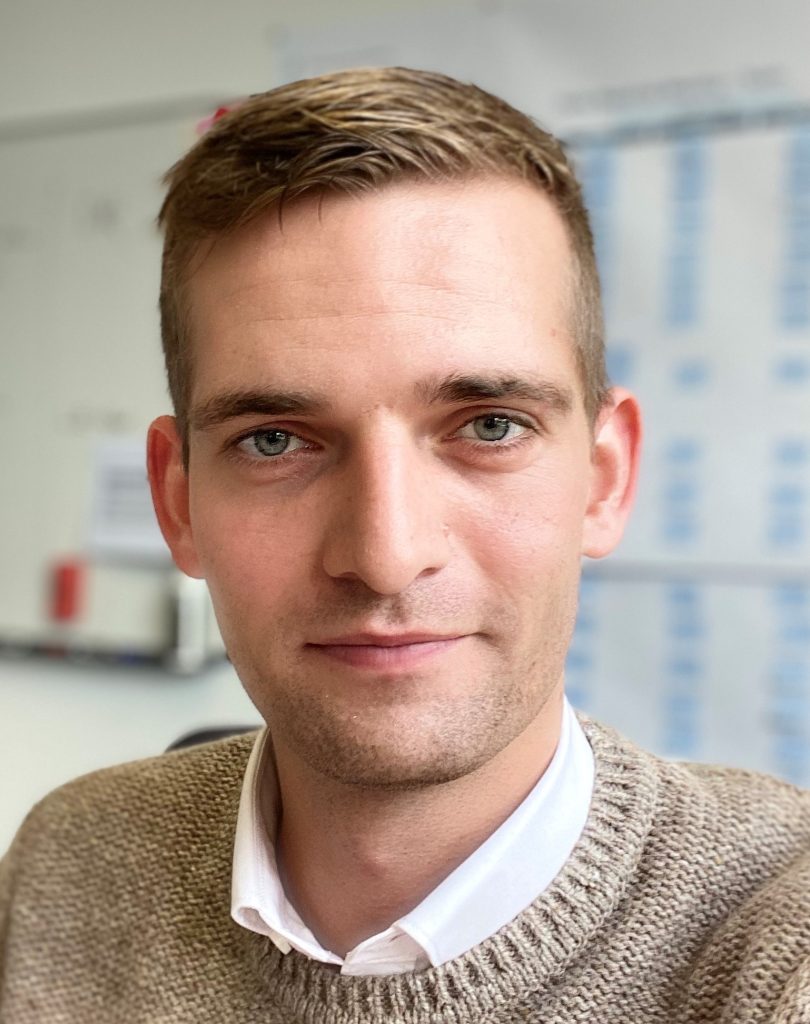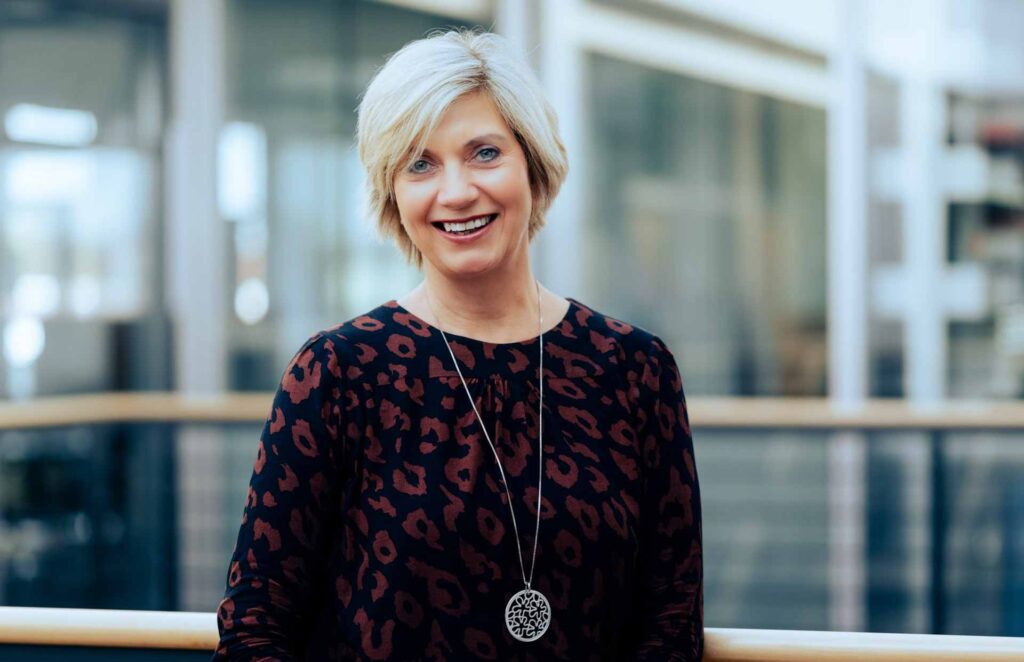Daniel Webers, what was the Future Leadership Training II like for you?
Very insightful. As a multinational corporation, we often have in-house management training courses. What was new for me was how people from completely different organizations and contexts see things.
Who or what led you to the Future Leadership Training?
My supervisor did the training a few years ago. As an alumnus, he recently received a message saying the training was being offered again and asking if he knew anyone who might benefit. So he said, “You’re relatively new in your leadership role, but not completely new. This is something for you.”
How would you describe the Leadership Training in three words?
Effective. Extraordinary. Leading-edge.
By effective, I mean that the training resonates much longer afterwards than other approaches do.
By extraordinary, I mean it’s not so much about leadership models, or dealing with employees or how things look to the outside world, things like how I present myself. We spent a lot of time looking at ourselves, looking within, which makes perfect sense. After all, leadership starts with me. So the Leadership Training focuses to a large degree on what is innate.
And by leading-edge, I mean taking a detailed look at how leadership has evolved over time. I think it’s both interesting and important to look forward and to look back. What did leadership mean a few years ago? What does it mean today and what will it mean tomorrow? What do younger employees expect from a manager? Why is it completely different to lead a boomer than someone from Gen Z?
Which sentences, insights or suggestions have stayed with you?
I found the idea of “planet-relevant leadership” very compelling.
And that we should always focus on the interpersonal.
Which means not starting immediately with the issue at hand or the process or the content. We need to look more often and more intensely at the interpersonal aspects. That improves leadership and makes it easier.
Was there a moment during the training that opened your eyes, your brain or your heart (or all of the above)?
The meditation and breathwork that Martin, our trainer, did with us was a powerful experiment. He used it to make the point that we aren’t machines – even if that might often be expected of us. He said, “Take more time to dive deep inside and listen. How are you doing right now? What’s really going on in your head, in your heart?”
What I also liked: offering breathwork as a suggestion and not simply putting it on the agenda. People could participate, but didn’t have to. Maybe it will be completely normal in 10 years, but I think making it a suggested activity is exactly the right thing for now.
What did you not expect from this training?
The way that Anja Schlenk and Martin Groß [the hosts] succeeded in creating a safe space. We worked in small groups of peers and knew that nothing would go beyond the room we were in, so we felt at ease with each other and could discuss real problems and confidential subjects without hesitation. That was amazing.
What could we do differently at coming trainings?
Two things. First, be a bit more sensitive to differences within the group, which is actually a big plus. I had the feeling that some participants sometimes felt a bit left behind. That has to do with the “corporate bubble” and the very specific language often found there. Using a lot of English terms, for example, as if it were normal. I think that was sometimes a problem for people. Maybe it would be enough to say at the start that this might happen. Or it might be possible to create some kind of “panic button” to signal: “Wait, I don’t understand what that means!” Just as a suggestion.
Second, offer ways for participants to stay connected after the course, opportunities for maintaining contact. I think it would be possible to do a bit more in that regard.
Anything else?
I really liked the book on democracy that we were given at the end of the training. It really touched my democracy-loving heart. It was a small but fine moment, one with a clear message: “Democracy is important. As leaders you should think about that too.”
Daniel Webers is Chief Financial Officer at a multinational corporation, where he is responsible for the CIS countries.
The Future Leadership Trainings are offered at regular intervals for young leaders from the worlds of business, politics and culture.

